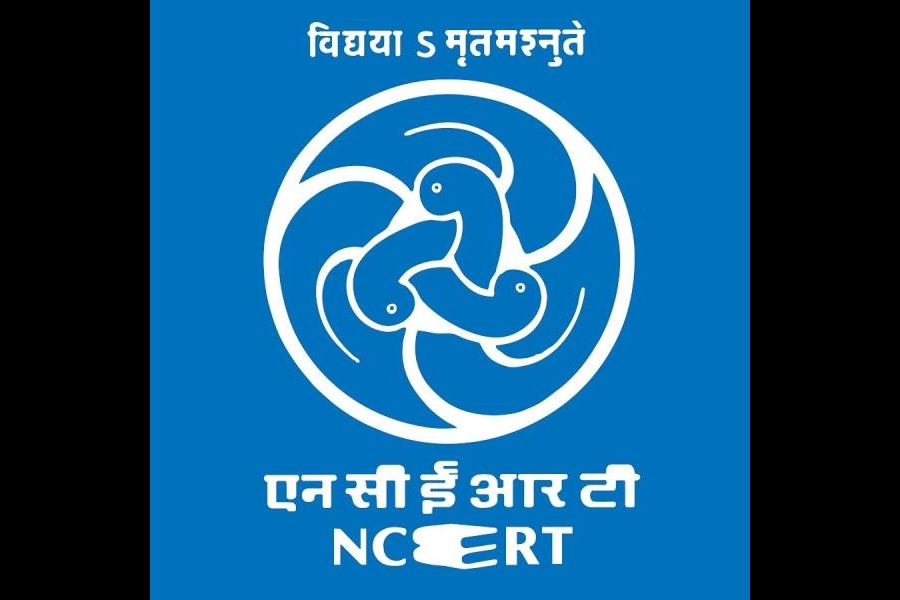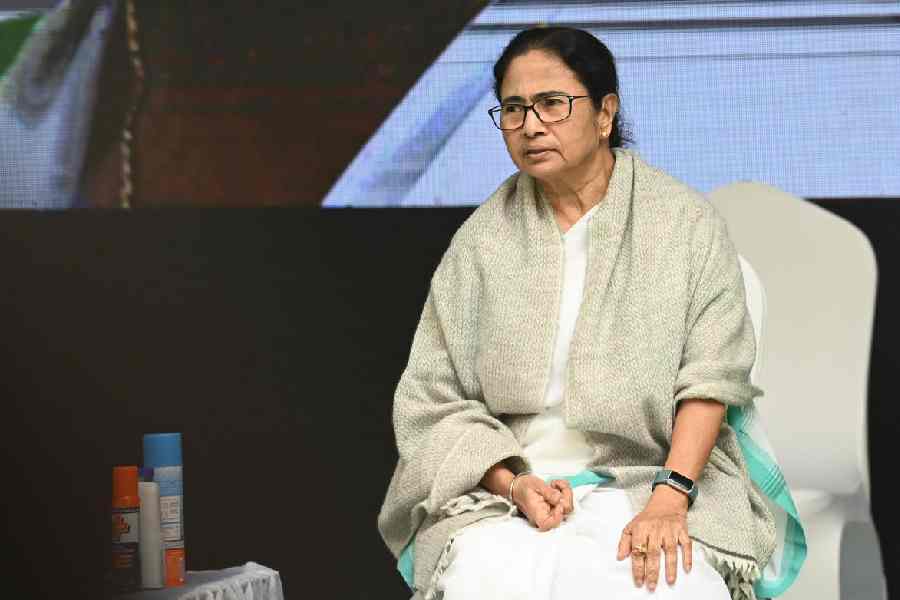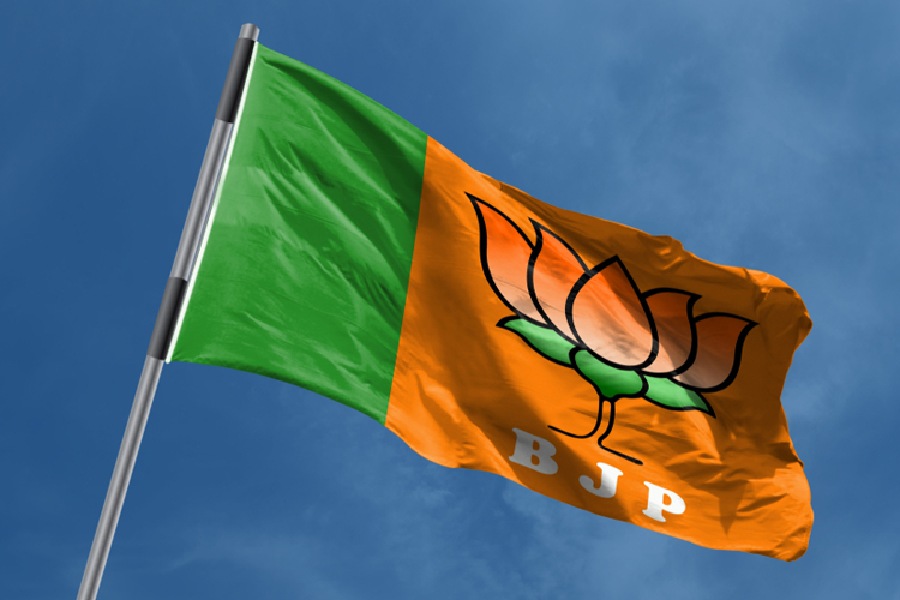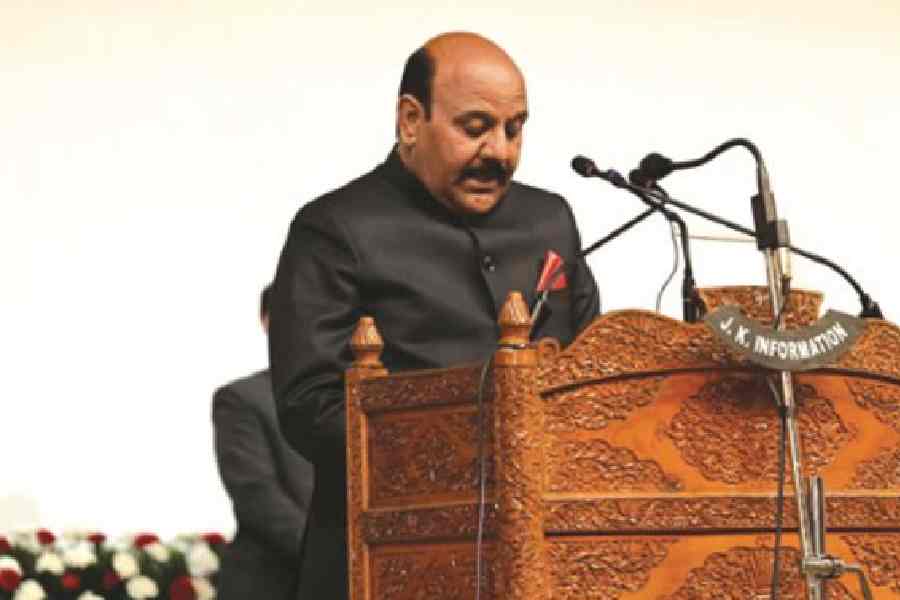Plot thickens
Sir — The Louvre heist case is unfolding like a Hercule Poirot mystery. Suspects have been arrested just as one of them was about to escape France. But what has caught the public imagination is the photograph of a man at the museum during the investigation into the missing crown jewels. Dressed in a three-piece suit and a waistcoat, with a fedora and an umbrella, this mystery man seems to be straight out of a Christie novel. Whether he is a detective, a dapper dandy well-versed in French couture, or a suspect in disguise, the speculation has only deepened the mystery. But given the embarrassing security failures that are making the Louvre case seem like a no-brainer, one wonders whether Poirot, real or not, would find it challenging enough to take up the case.
Shakhyo Ghosh,
Calcutta
Indirect coercion
Sir — Donald Trump’s move to sanction two of Russia’s largest oil firms — Rosneft and Lukoil — has disrupted India’s lucrative energy strategy, leaving it grappling with rising costs, disrupted supplies, and the politics of managing relations between Washington and Moscow. Since taking office for a second term earlier this year, the president of the United States of America has warned, pressured, and even threatened India against purchasing Russian oil in an effort to bend Vladimir Putin into negotiating an end to his war against Ukraine.
Russian exports account for about 7% of the global oil supply. The sanctions on Rosneft and Lukoil have shaken the global market and put New Delhi in a difficult position. But will these sanctions halt Putin’s ambitions? I think not. Due to economic constraints, Russia may hesitate to launch an offensive on Ukraine with the same ferocity. The war, it is feared, could drag on longer.
Jang Bahadur Singh,
Jamshedpur
Sir — By imposing sanctions on Rosneft and Lukoil, which together account for nearly 5% of global crude output, the US president, Donald Trump, has intensified pressure on Moscow and its key buyers such as India and China. While the ultimate objective of these sanctions is to weaken the Kremlin’s war machinery and bring an end to Russia’s invasion of Ukraine, the move is already disrupting global oil markets, with prices rising by 5%. India must carefully reassess its energy strategy and strike a balance between securing its energy needs and navigating complex geopolitical realities.
M. Jeyaram,
Sholavandan, Tamil Nadu
Sir — Reliance Industries Limited’s crude oil import from Russia has taken a hit after the US sanctioned Russia’s top two oil producers. Indian oil refiners, which have been importing Russian crude at affordable prices since 2022, must seek alternative sources like the Middle East.
Prasun Kumar Dutta,
West Midnapore
Sir — Reliance Industries Limited recently bought millions of barrels of crude from the Middle East and the US after Washington sanctioned two Russian oil producers. It is being assumed that the sanctions on Russian firms would compel India to phase out its purchase of Russian crude. However, with the surge in Brent crude oil prices to nearly $66 a barrel, it will be difficult for India
and China to cut back on Russian imports.
Sukhendu Bhattacharjee,
Hooghly
Symbolic absence
Sir — Narendra Modi deciding not to participation in the ASEAN Summit in person has raised eyebrows (“Chance missed”, Oct 27). It was important for the Indian prime minister to address the Southeast Asian grouping and inspire positivity. At a time when the existing world order is collapsing, India should realise the importance of such regional groupings and take charge.
Kirti Wadhawan,
Kanpur
Sir — I differ from the views expressed in the editorial, “Chance missed”. By declining to attend the ASEAN Summit in person, Prime Minister Narendra Modi has given a befitting reply to the US president, Donald Trump. Instead of arguing face to face over the issue of retaliatory tariffs, it was better to give a reply through a symbolic gesture. Besides, India does not have the capacity to engage in a direct conflict with the US. World politics is not child’s play; it requires deep deliberation, thought and prudence. India’s tactical approach was thus pragmatic.
Mihir Kanungo,
Calcutta
Sir — The prime minister’s virtual address to the ASEAN Summit was hopeful. The partnership between India and ASEAN can do wonders for the region. At a time when India’s ties with its neighbours — Pakistan, China and Bangladesh — remain frosty, a mutual partnership with Southeast Asia could be beneficial for New Delhi.
Iftekhar Ahmed,
Calcutta
Open route
Sir — It is heartening that direct flights resumed between Calcutta and Guangzhou in China after four years. The service had been halted first due to Covid-19 and later amid tensions over the Ladakh border standoff. This marks a milestone in post-pandemic aviation and bilateral ties. It will not only shorten travel time but also bolster Calcutta’s role as an international hub.
Jayanta Datta,
Hooghly
Poor standards
Sir — The Gross Domestic Behaviour survey confirms what has been previously known: India’s civic culture is marred by littering, spitting and disregard for shared spaces (“Stubborn stain”, Oct 27). Ironically, foreign tourists in Indian cities are often seen picking up litter that locals walk past. When Indians migrate, the civic indiscipline travels with them — Diwali celebrations abroad this year saw noise and mess that echoed India’s civic (non)sense.
Harsh Pawaria,
Rohtak, Haryana










